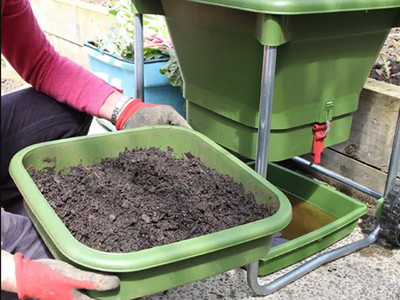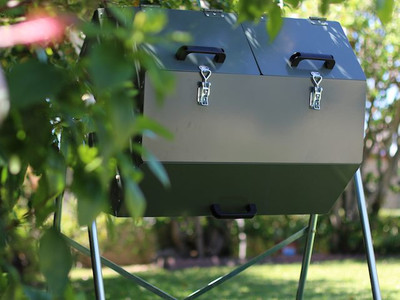Reducing Food Waste
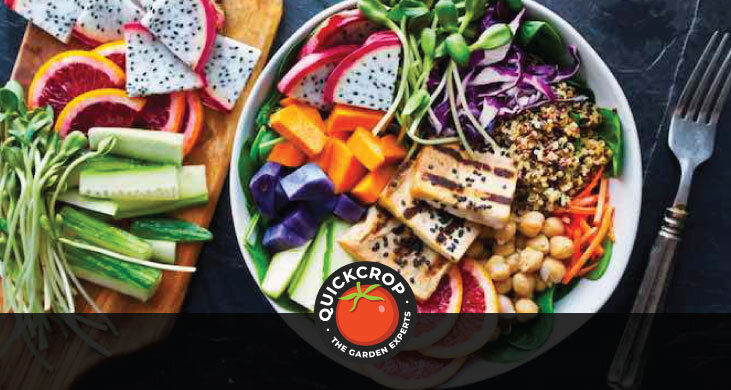
Food waste is a significant social issue with far-reaching consequences for the environment. According to the EPA, Ireland generated 835,000 tonnes of food waste in 2023 - or 162 kg of food waste per person. Households account for over a quarter of this food waste according to the same data.
Wasting food doesn’t just squander hard-earned money: further resources are used to produce, transport, and store this food - including water, energy, and land usage.
How Food Waste Harms the Environment
Environmentally, food waste is a major contributor to global warming and climate change. When food is left to decompose in landfills, it is buried under newer layers of trash. This cuts off oxygen and leads to the production of a potent gas called methane.
Methane is a key contributor to global warming; you may have heard of it in the context of cows or manure storage, but landfills are a significant source of worldwide methane emissions. This gas is about 84 times more effective than carbon dioxide at trapping heat in the atmosphere over a 20 year period. That’s bad news!
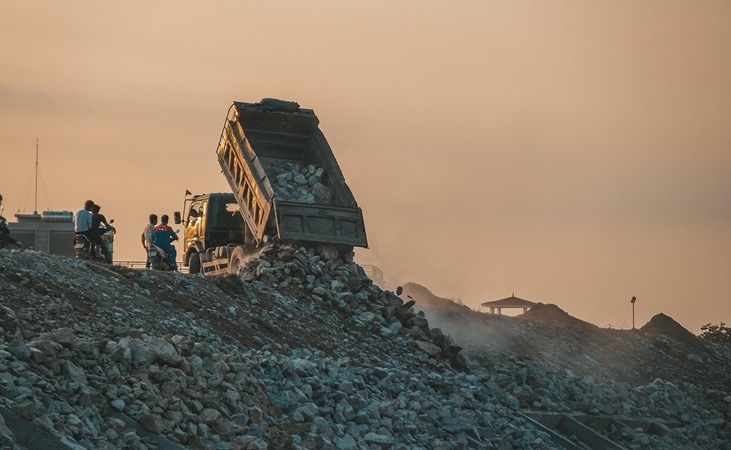
Therefore, reducing the amount of unused food that we send to landfill is a vital goal if we want to tackle climate change and move towards more sustainable lifestyles.
Zero Waste and Composting
Adopting a Zero Waste mindset can have some welcome benefits for your vegetable garden. By composting food scraps we can return nutrients and organic matter to the soil: feeding our plants, improving our garden soil, reducing the amount of waste clogging landfills, and closing our individual food loop.

Hotbin Composter - Hot Compost Bin 200 Litres
View ProductBecause composting involves aerobic decomposition (as opposed to anaerobic decomposition in landfills), it doesn’t produce the same harmful emissions, and is instead a net positive for the ecosystem. It’s an excellent way of transforming food waste into a valuable garden resource that nourishes long-term soil health.
Reducing Food Waste At Home
While some food waste is unavoidable, most of what ends up in the bin can be prevented. Start by taking stock of what you buy and eat - often, food is thrown away simply because we forget it’s there or don't get around to cooking it.

Minimise what goes in the bin by:
- Cooking only what you need
- Saving leftovers for another meal
- Being creative with ingredients that are nearing their expiry date
Making Use of Food Scraps
Expired or unwanted food and leftovers aren’t the only sources of organic waste. Food scraps are the ‘byproduct’ of food preparation and consumption. These can include vegetable peels, fruit cores, eggshells, coffee grounds, bread crusts or meat trimmings.
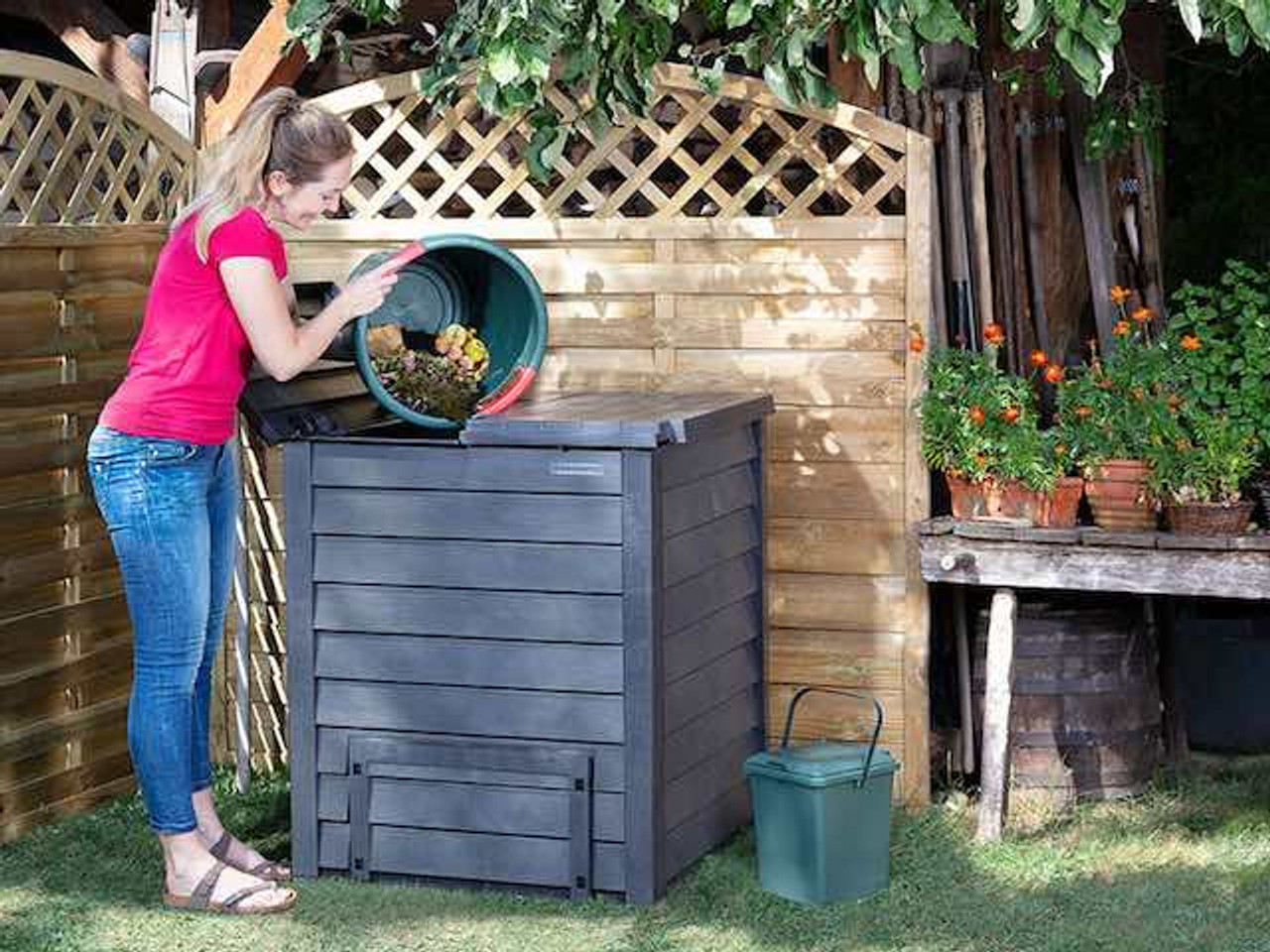
Thermo-Wood Composter
View ProductFood scraps can be a particular food waste challenge for the food sector, for obvious reasons - but households can put these food remnants to good use as well, by composting them or by incorporating them into broths or stews. Coffee grounds can also be used as a natural deodoriser.
Reducing Food Waste Away from Home
Food waste doesn't only happen at home; it can occur wherever we eat. Here’s how you can follow the same principles when you’re out and about:
At Work: Use last night’s leftovers for tomorrow’s lunch. Try to avoid relying on takeaway or deli lunches.
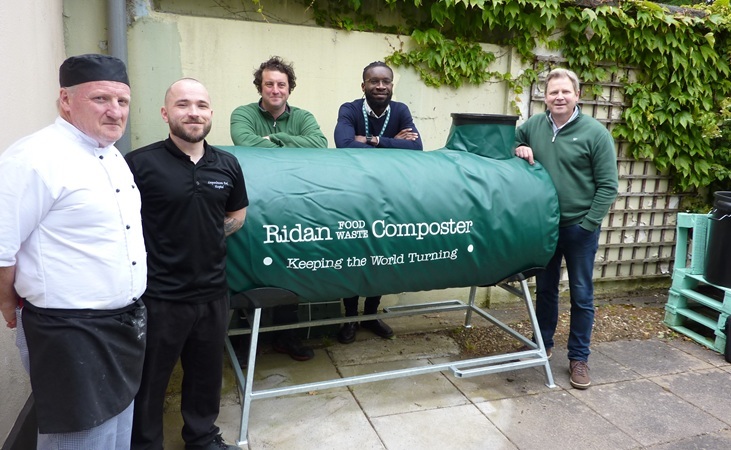
At School: Biodigesters or commercial composters such as the Ridan are very popular in schools (with both staff and students), and are a perfect educational tool to illustrate the benefits of composting and how natural life cycles of decomposition and renewal work.
When Socialising: Be mindful when ordering at restaurants. If portions are large, ask about getting a half portion - or ask for a takeaway container to bring home leftovers. If there’s a certain side dressing you’re not a fan of, ask if it can be left out of the dish.

Commercial Joraform JK6200
View ProductOn the hosting side, plan your menus carefully and encourage guests to take their leftovers home. As above, if your restaurant or business doesn’t have their own composter, look into the need for one. Many restaurants have a system for food waste collection, but sometimes having an on-site composter is a more sustainable solution with benefits for the business.
Prevent Food Waste Before it Begins
Smart Shopping
Before leaving for the shop, check your cupboards, presses and fridge. Take stock of what you already have and what you’re running out of. It may seem obvious, but a shopping list can help you focus on what’s needed and what may be surplus to requirements.
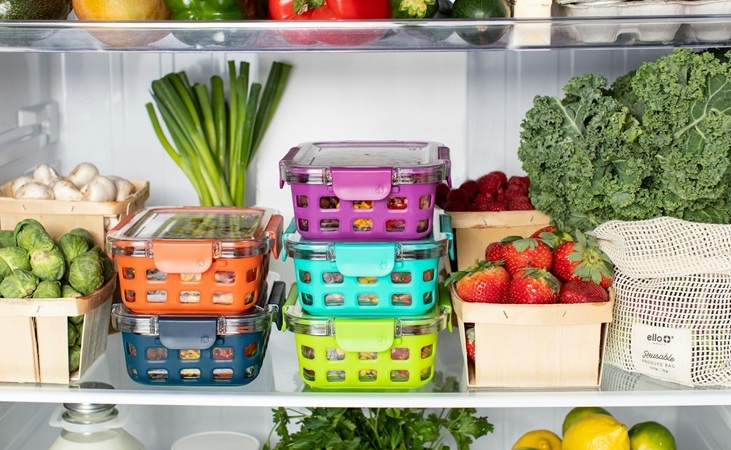
Expiry Dates
Set reminders on your phone for any products that have a habit of expiring or reaching the food safety danger zone before they’ve been used. Move older food to the front of the shelf. And use up that last bit of milk before opening a new carton!
Meal Planning
Having a good meal planning system doesn’t just cut down on food waste; it can also save you valuable time spent in the kitchen and free you up to do other things. Invest in some food storage containers and separate out bulk-cooked pasta, rice etc into even portions. This can make dinner time a breeze, which is particulary welcome when you’ve had a long day at work or elsewhere.
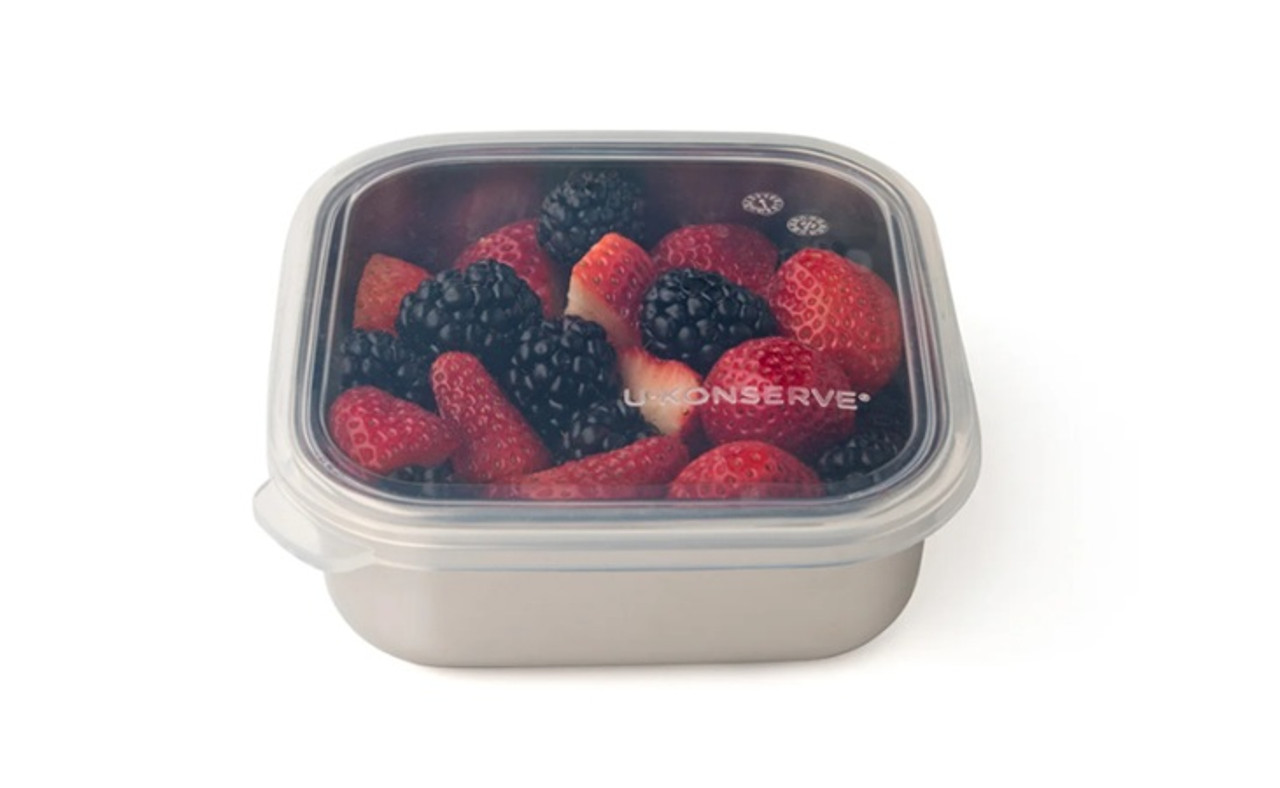
To Go Container - Medium
View ProductSensible Storage
With some food items, how long they stay fresh can depend on where they are stored. This obviously applies to refrigerated meats etc, but it also applies to food items like potatoes - which can start to turn green or sprout quicker if they’re not stored in a cool, dark place like a cupboard.
Freezing
Freezing food is a great way of extending its lifespan, and can be invaluable if you do your shopping in bulk. Just be aware that some foods can suffer quality or texture-wise if you store them in the freezer; double check recommendations to be sure.
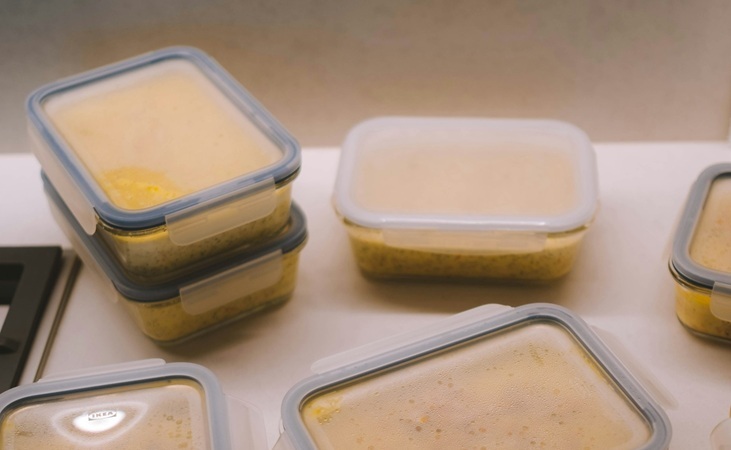
Labelling
Sometimes having a lot of food containers in the fridge can cause confusion or uncertainty as to how much longer the food in question is ‘good’ for. Use a sticky label to mark the contents and the date that they were cooked or prepared.
Get a Dog!
It may not be a viable option for everyone, but dogs are adept at hoovering up any food leftovers and ensuring that nothing goes to waste. They’re even known to beg for the opportunity to do this important task. Just double check that the scraps in question are safe for dogs - and make sure not to feed them small bones, which can be very harmful (even fatal) to dogs when swallowed.
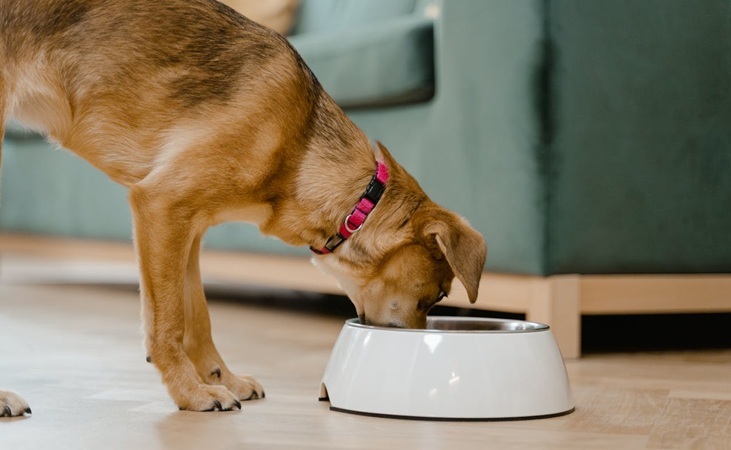
Brown Bin Composting
In Ireland the brown bin is typically the one used for composting. More and more households around the country are now having their food waste collected by bin service providers using these brown bins (which often come with an indoor caddy). The response has been encouraging, with food waste diverted away from landfill, particularly in urban areas where garden composters are often not a workable solution.
Wormeries
If you only have a small outdoor space (or even a balcony), a wormery is a great solution for processing kitchen scraps. Wormeries use special composting worms (typically tiger worms or ‘red wrigglers’) to break down organic kitchen waste into a rich, dark ‘vermicompost’, also known as worm castings.
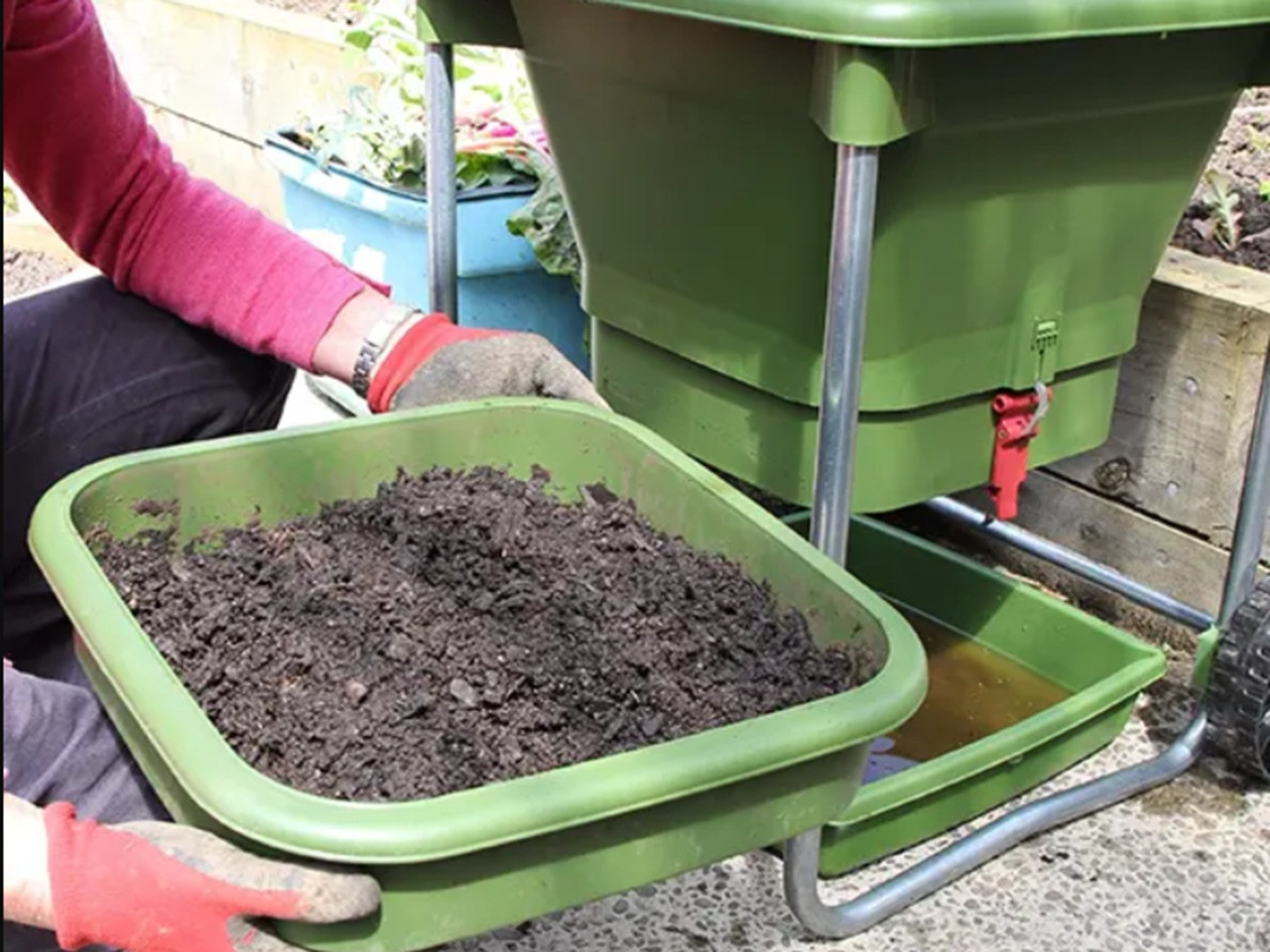
The Incredible Hungry Bin Worm Composter
View ProductVermicompost is an excellent soil amendment and natural fertiliser. It has a finer, more crumbly texture than traditional compost and is rich in nutrients like nitrogen, phosphorus, and potassium. It also adds a host of beneficial microbes.
Vermicomposting takes place at cooler temperatures than a traditional compost pile, and does not require turning or careful ratios of ‘brown’ and ‘green’ materials. The process also produces a liquid fertiliser (‘worm tea’) which can be diluted and used on your houseplants.
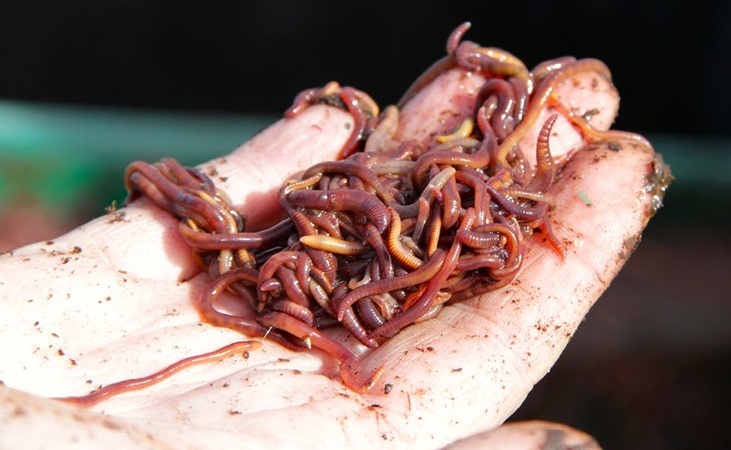
Red wriggler worms thrive on fruit and veg scraps, coffee grounds, and even shredded newspaper. Just steer clear of meat, dairy or anything oily, which can cause odours or attract vermin. Wormeries are also a great way to educate children about how food can be recycled - they are very popular in schools.
Bokashi Bin
Unlike traditional composting, Bokashi is an anaerobic process that ferments (rather than decomposes) food waste. Part of this process involves sprinkling ‘Bokashi Bran’ - a mix of bran, molasses, and effective microorganisms - over each layer of kitchen scraps you add to the Bokashi container. Once the bin is full, the contents are left to ferment for about two weeks, with an airtight lid ensuring suitable conditions.

Bokashi Organko 2
View ProductThe Bokashi method doesn’t produce finished compost as we know it. Instead of a crumbly ‘black gold’ material, you will see that the food scraps actually retain a lot of their previous appearance but have now become almost odourless (save for a slightly sour smell).
This ‘pre-compost’ material can be dug into garden soil, added to an outdoor compost pile or given to a local allotment group. When added to a compost pile it will break down very quickly, and it can really kickstart a compost pile that has slowed down.
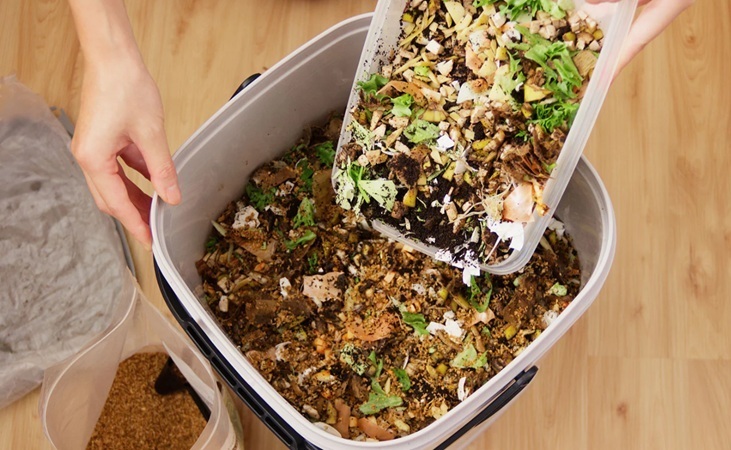
One of the key benefits of the Bokashi system is that it can handle all types of food waste, including meat, dairy, and cooked food. The fermentation process all but eliminates strong odours.
The Bokashi method is an interesting and increasingly popular alternative for households that produce modest amounts of food waste but lack outdoor composting space or bulk materials for a pile. It’s fast (fermentation takes roughly 2 weeks), mess-free and easy to manage indoors.
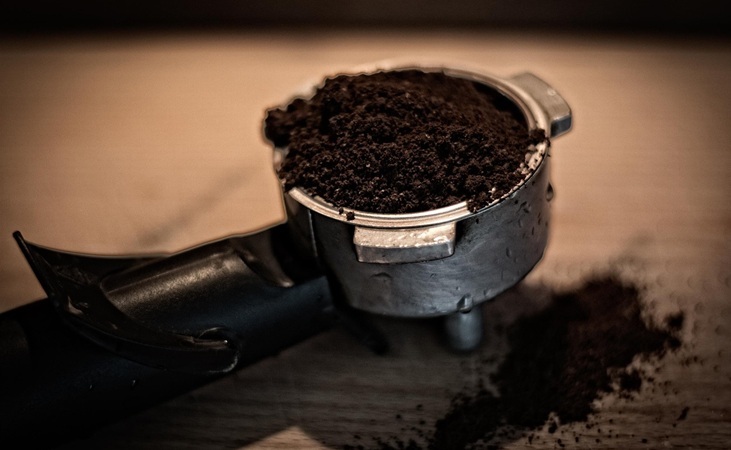
Tips for Reducing Food Waste
- Nut shells can be used as a natural mulch, with the ability to suppress weeds.
- Stale bread is ideal for making homemade croutons or breadcrumbs.
- Freezing fresh herbs will preserve their flavour for longer.
- Using transparent food containers makes it easier to see what’s inside them at a glance.
- Coffee grounds are rich in nitrogen, as well containing nutrients like phosphorus and potassium - making them a great long-term soil improver. Avoid adding a lot to garden soil at once, as this can cause compaction or negatively affect water absorption. If you have a composter and need more ‘greens’ to balance out the mixture, ask your local cafe for their unused grounds. Tea leaves are also a good source of greens.
Citations: "Weekly Food Routine at Home." Love Food Hate Waste, https://www.lovefoodhatewaste.com/good-food-habits#Weekly-food-routine

